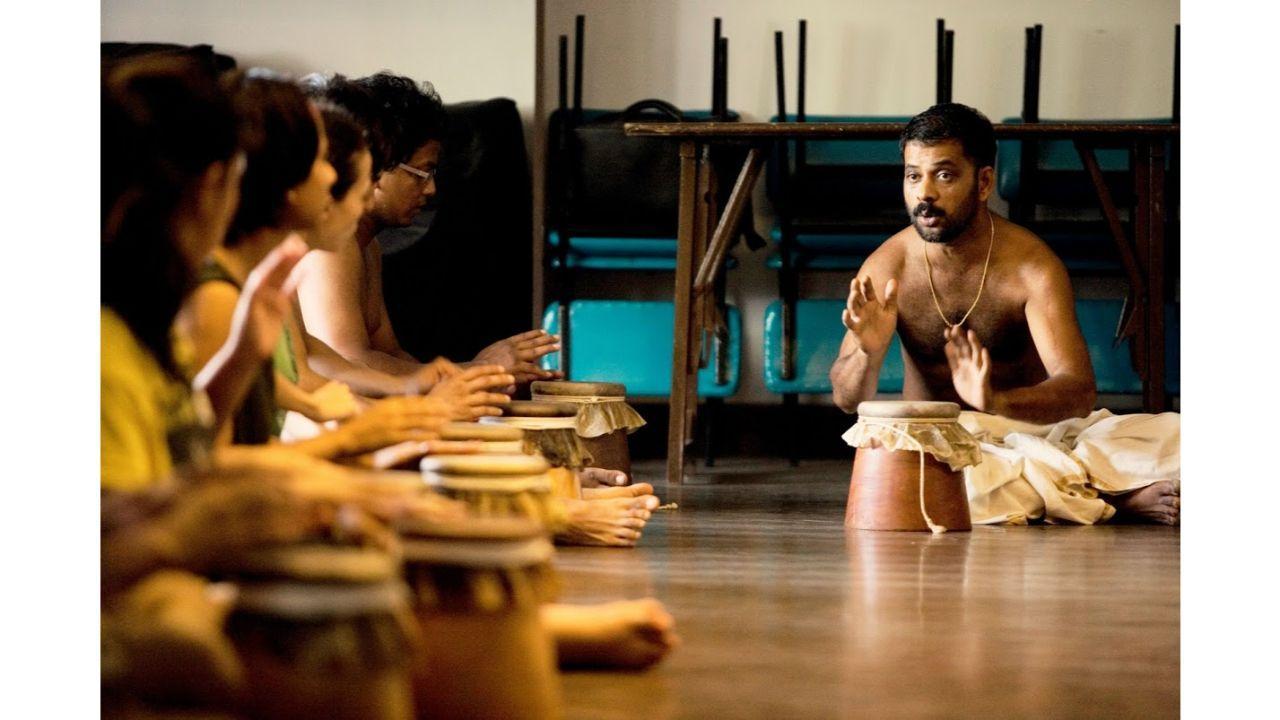Through its new online drama course, the city-based drama school encourages theatre aspirants from all over including tier-2 and tier-3 cities to explore different styles and techniques

Participants attending one of Drama School Mumbai's training modules. Photo courtesy: Drama School Mumbai
The Covid-19 pandemic has forced most performing arts venues and schools to focus on an online approach and with Mumbai experiencing its second wave of cases, it has only giving a boost to the digital medium. The Drama School Mumbai, co-founded by Jehan Manekshaw, Maneesh Verma and Hetal Varia, has started the Eklavya Online School of Drama for theatre aspirants, who do not have easy access to drama schools around the country, and so they can attend them from the comfort of their homes. The cost-effective e-learning programme with its acting and theatre courses will involve rigorous training experiences by top faculty from the Drama School Mumbai accessible to all its participants in different regional languages starting with Hindi.
ADVERTISEMENT
Here are excerpts from the interview with Jehan Manekshaw about the new initiative
NP: What led to the creation of the Eklavya Online School of Drama? With the ongoing Covid-19 pandemic, what role do you think Eklavya plays for aspiring artistes all around the country?
JM: Last year the Drama School Mumbai had 3000 strong expressions of interest, from 43 cities across the country, people who had strong dreams and a desire to learn, to become an actor, to pursue their creative sides. However, only 130 applied to our main courses. The reasons ranged from fees (we have scholarships), to the time commitment, the confidence "mujh main hai ki nahin", the intimidation of going into an industry they didn't know about, and the uncertainty of the career - mainly from parents who did not want their kids to take such huge risks.
When we started looking at how digital learning was taking off, we realised that most formats out there were knowledge-based learning, and the experiential learning stuck to things like yoga, dance, etc. But for performing arts, drama - there was no format out there. So, we designed Ekalavya from the ground up - to deliver formal training in theatres via the online medium. This programme will give all those 3000 and more, who did not apply, a chance and opportunity to try these things for themselves, in smaller, easy to manage units of teaching, and build their confidence and capability with which to take the big leap, eventually to a big metro like Mumbai to for further training and a career, like all our other successful alumni at the DSM.
NP: What are the different courses available and what is the duration of the courses in a day and entirely?
JM: From a free 10-hour course called Finding Characters to learning about Mastering Monologues and learning how to use your voice, speech and body to express yourself better, there is a bundle of eight courses. You can explore them and the amazing faculty here - https://ekalavya.art/our-programme/
They together, become a fundamental set of 'chapters' in the ‘textbook’ on how to prepare to be an actor. Each course will require about 8-10 hours of activity from the student in order to master it. They should do it over two or three weeks and keep coming back to the activities and exercises, as you know, practice makes it perfect.
Jehan Manekshaw
NP: With the target audience being in tier-2, tier-3 cities, what are the different regional languages the courses will be available in for participants?
JM: We are starting these courses in Hindi, but will work with other regional artists to deliver the courses in Telugu, Kannada, Tamil, Malayalam etc. We hope to go for each major Indian language one at a time over the next year or two.
NP: How do you think theatre has changed in the last one year due to the Covid-19 pandemic?
JM: The live spaces have entirely gone silent, and are now coming back at a fraction of their activity, but the theatre community has really improvised and evolved in many ways to see how they can still bring their talent, abilities and stories to audiences through digital formats during lockdown. This is an ongoing and new journey of discovery and it has just begun.
NP: While there are many courses available for non-performing arts today, do you think the Covid-19 has given a boost to online theatre training that may have never been imagined before?
JM: The Drama School Mumbai managed to get its main one-year advanced training course online for the committed professional actors. We have students from across the country signing in, and even one from Canada. Faculty from all over the world have come to teach. It's all amazing and new at this point. The access, the potential for cross collaboration, the ideas and techniques and ways of thinking about performance, theatre making and storytelling that are now available to us almost - immediately (with time zones being the only minor challenge), it's an exciting time for theatre-training, and as I mentioned earlier, we are only beginning to understand what this can be. The DSM and Ekalavya going forward, prides/will pride itself on bringing best practices from all over the world to our students. This has just made it that much easier to do so.
 Subscribe today by clicking the link and stay updated with the latest news!" Click here!
Subscribe today by clicking the link and stay updated with the latest news!" Click here!






